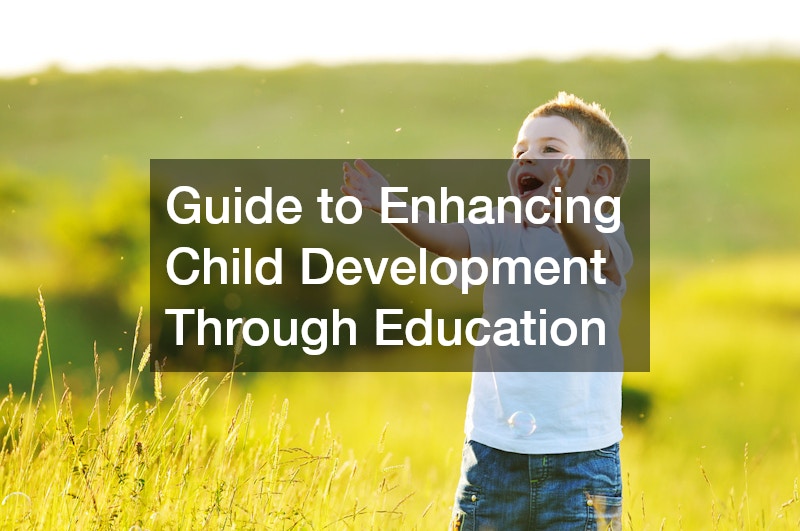Supporting child development through education involves much more than classroom learning. It starts from the earliest stages of life, when children begin to absorb the world around them. From structured school environments to informal learning moments after daycare, every experience contributes to a child’s emotional, intellectual, and physical growth. Parents and educators alike play a crucial role in shaping how children learn, explore, and grow. The early years, in particular, offer a unique window for development when the brain is most receptive to new experiences and knowledge. It’s during this time that laying a strong educational foundation can make a lifelong difference. Creating a balanced educational journey involves a variety of elements—structured curriculum, play-based learning, social interactions, and health-conscious care. It also means knowing what resources are available, how to evaluate them, and when to introduce new opportunities. Whether you’re a parent trying to decide on a school or a caregiver looking for enrichment options after daycare, this guide will walk you through the essentials of educational development. Let’s explore how educational experiences at every stage can enhance growth, foster confidence, and nurture well-rounded, resilient children ready to succeed in life.
Early Enrichment Through Activities
The foundation of a child’s development is laid early, often through play-based experiences. Carefully chosen activities for toddlers can significantly impact how they grow cognitively, emotionally, and physically. These activities should be fun, safe, and designed to encourage exploration. Examples include sensory bins, building blocks, painting, storytelling, and music-based games. These tools spark creativity and teach problem-solving skills, even in the youngest learners. The best toddler activities focus on motor skills, language development, and basic social interaction. Incorporating structure and flexibility allows children to feel secure while also discovering new abilities. For families, this kind of enrichment can continue after daycare, giving children consistency and opportunities to process their day in a relaxed, fun setting. Daily routines that include reading, singing, or outdoor play support early learning and form healthy habits. Parents can play an active role in choosing or creating these activities to align with their child’s interests and developmental milestones. High-quality toddler activities foster not just short-term engagement but also long-term confidence, curiosity, and a love of learning that will serve them well as they move into more formal educational settings.
Understanding the Difference Between Preschool and Daycare
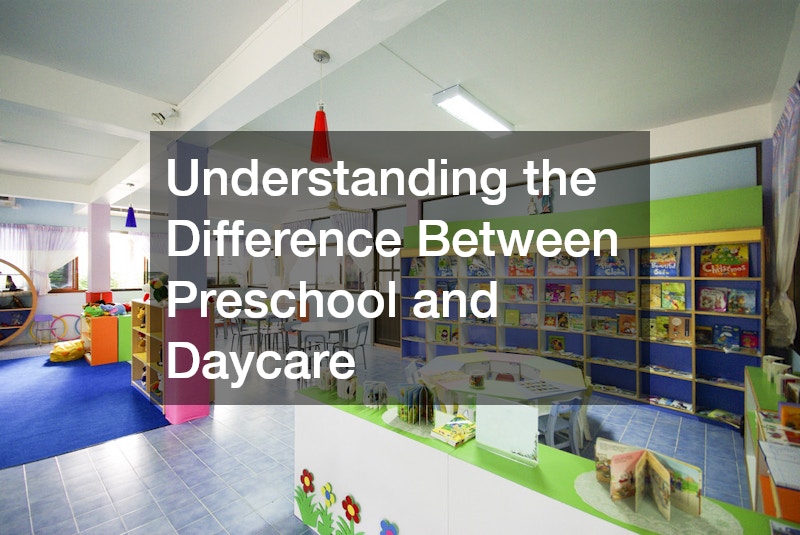
Parents often find themselves confused by the difference between daycare and preschool, especially when trying to decide the best environment for their child’s early years. While both provide care for young children, their primary focuses differ. Daycare is typically designed to accommodate working parents and may care for children from infancy through early school age. The emphasis is on safety, basic development, and supervision. In contrast, preschool is more structured around education and prepares children for kindergarten by introducing them to letters, numbers, routines, and peer collaboration. Preschool programs usually serve children ages 3–5 and follow a curriculum designed to stimulate social, cognitive, and physical development. Understanding these differences helps parents make better decisions about where their child spends time, particularly after daycare hours. Some families opt for a combination of both to ensure their children receive both nurturing care and academic readiness. Evaluating the staff credentials, daily routines, and learning objectives of each option can provide insight into what’s best for a child’s unique needs. By understanding this distinction, parents can feel more confident that they are setting the stage for successful transitions into formal education.
Making the Most of the Summer Camps
As school lets out for the year, summer becomes a valuable opportunity for continued development. Enrolling your child in one of the best summer camps can keep them engaged, active, and learning even when the classroom is closed. Camps come in various forms—educational, athletic, artistic, or nature-based—and are designed to support different aspects of development. These programs promote social interaction, independence, and self-esteem by placing children in new environments with fresh challenges. Many camps include structured learning in subjects like STEM, language, and the arts, blending fun with educational growth. For working parents, a quality summer camp is a great solution to keep learning going after daycare ends. When selecting a camp, consider your child’s interests, the staff’s experience, and how the camp aligns with your values. The best programs are those that offer a balance of freedom and guidance, allowing kids to explore new skills while feeling supported. Summer camps are also a great way for children to unplug from screens and engage with nature, creativity, and peers in meaningful ways. This seasonal experience often provides lifelong memories and builds qualities like resilience, teamwork, and confidence.
Building a Foundation With Health Care
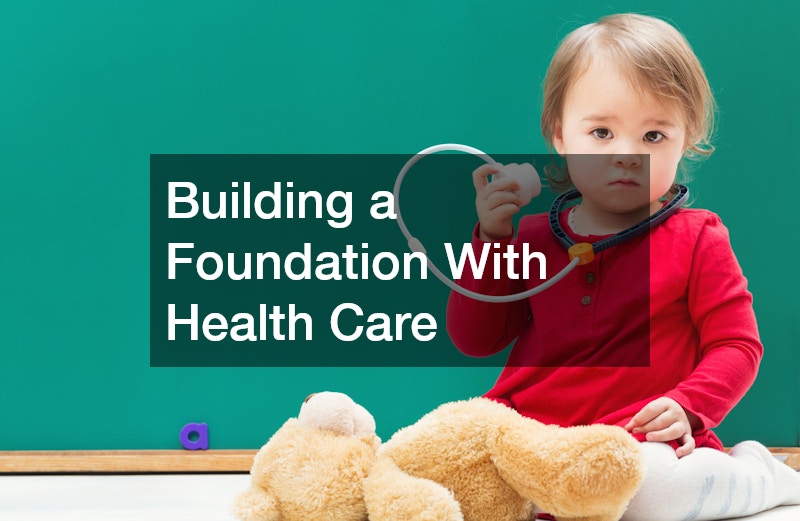
Quality education can’t happen without a strong foundation in health. Childrens health care is a cornerstone of child development, impacting everything from attention span to social behavior. Routine checkups, immunizations, dental visits, and proper nutrition ensure children are physically ready to learn. Vision and hearing screenings, for example, can catch issues that, if untreated, could hinder educational progress. Emotional and mental health support is equally important, particularly in today’s world where anxiety and behavioral challenges are increasingly common. Parents should maintain open communication with pediatricians, especially if children exhibit signs of distress or developmental delays. Establishing a trusted health care routine early sets the stage for lifelong wellness. After daycare, maintaining routines like regular meals, hygiene, and sleep are crucial for reinforcing daytime habits and improving nighttime rest. Partnering with healthcare providers also helps parents track growth milestones and tailor educational approaches to each child’s needs. Encouraging children to understand the basics of self-care and hygiene through interactive activities also supports learning. In short, healthy children are better learners. By investing in comprehensive children’s health care, parents are simultaneously investing in their child’s educational success and overall well-being.
Life Skills and Confidence With Swim Classes
Swimming is more than just a sport; it’s an essential life skill that contributes to physical, emotional, and cognitive development. Enrolling your child in swimming classes provides numerous benefits beyond water safety. It improves coordination, builds endurance, and instills confidence through measurable achievements like learning new strokes or floating independently. Classes also teach patience, discipline, and listening skills—qualities that transfer well into classroom environments. The repetitive nature of swimming drills enhances muscle memory and focus, which are beneficial for young learners. For many families, these lessons occur after daycare, offering a structured yet fun way for kids to stay active and engaged. Swimming also offers a chance for children to socialize with peers in a different setting, learning teamwork and communication. It’s particularly valuable for children with high energy, as it provides a healthy outlet for physical expression. Programs are available for every age and skill level, making swimming one of the most accessible and inclusive extracurricular activities. Safety is a top priority in reputable programs, with certified instructors trained to provide gentle, progressive instruction. Over time, swimming builds a child’s sense of independence and achievement, both in and out of the water.
Supporting Milestones in Child Development
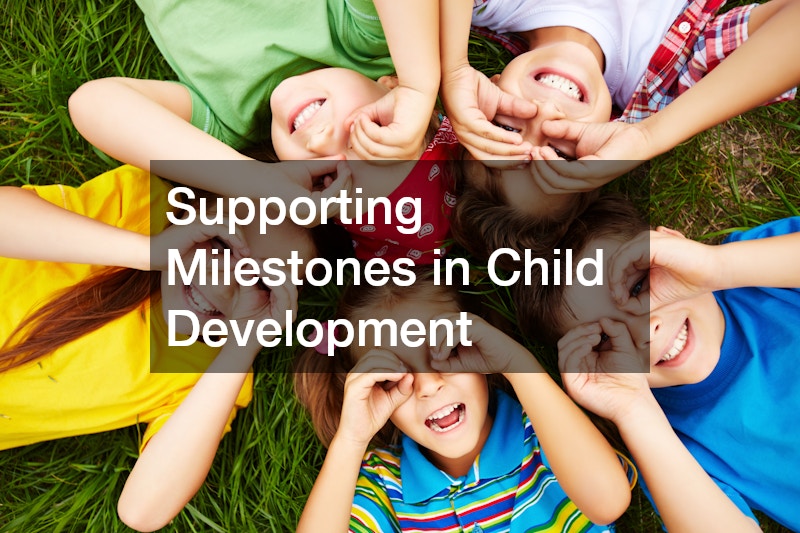
Understanding the stages of children development is key to supporting their growth through education. Development isn’t limited to academics—it encompasses emotional regulation, motor skills, speech, social interaction, and problem-solving abilities. Parents and educators who recognize these stages can provide the right activities and encouragement at each phase. From infancy through adolescence, development follows a general pattern, though each child progresses at their own pace. Regular assessments and observations help identify areas where a child may need extra support or stimulation. Providing consistent structure, praise, and opportunities for exploration creates a safe environment for development. Many milestones are reinforced during the hours after daycare through structured play, bedtime stories, or quiet reflection with caregivers. These moments help children internalize their experiences and continue learning in a more relaxed setting. Parents should engage in regular dialogue with teachers and caregivers to track progress and collaborate on developmental goals. Tools such as developmental charts or progress journals can also aid in monitoring growth. Supporting a child’s development involves patience, observation, and the willingness to adapt. When children feel understood and supported, they’re more likely to thrive both academically and emotionally.
Preparing for School at a VPK
Voluntary Prekindergarten (VPK) programs offer essential early education that helps children get ready for school. A VPK school provides structured learning environments where children begin to develop academic skills, social behaviors, and classroom routines. These programs are designed to bridge the gap between early childcare and kindergarten, with an emphasis on literacy, numeracy, and emotional readiness. Many parents choose VPK for its balanced approach, combining play with formal instruction. Children learn how to follow directions, interact respectfully, and express themselves clearly. The daily routine often mimics what they’ll experience in elementary school, making the transition smoother. After daycare, some children attend VPK as part of an extended care model, reinforcing lessons learned during the day with evening stories or enrichment play. Research shows that children who attend quality prekindergarten programs are more likely to succeed in school and less likely to need special education services later. Choosing the right VPK school involves considering curriculum, teacher qualifications, class size, and emotional support systems. A strong start in a VPK program lays the groundwork for academic confidence and lifelong learning. It’s an investment that pays dividends in a child’s future.
Transitioning Smoothly Into Kindergarten
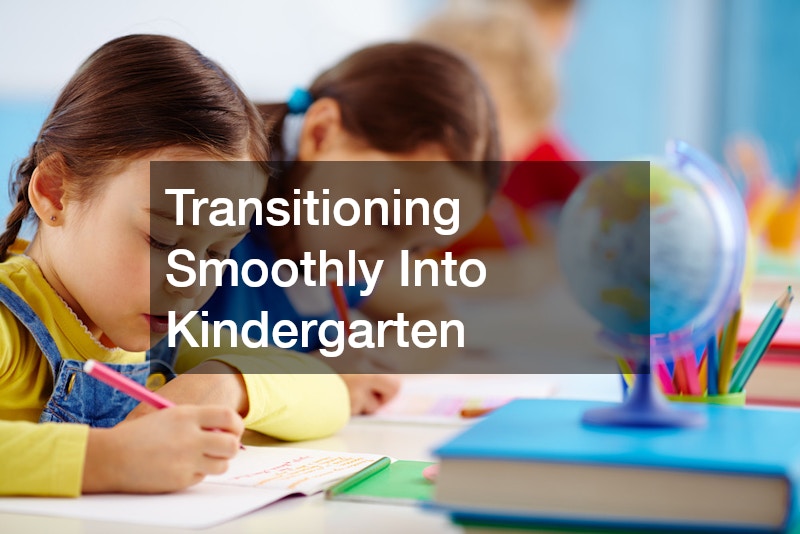
Kindergarten marks a significant transition in a child’s life. It’s where foundational academic learning meets growing independence and social development. Preparing for kindergarten involves more than teaching letters and numbers—it includes cultivating self-control, listening skills, and the ability to work in a group. Children who have a structured routine after daycare often adapt more easily to the expectations of a full school day. By continuing habits like story time, simple chores, or educational games, parents can reinforce school readiness at home. Kindergarten introduces children to new subjects like science, reading, and math in a more formal setting. It also involves navigating friendships, sharing, and conflict resolution. Teachers look for students who are emotionally ready to follow instructions, engage in cooperative play, and manage their belongings. Parents can ease the transition by practicing school-related activities at home and talking positively about the new experiences ahead. Visiting the classroom, meeting the teacher, and gradually introducing school supplies can also help build excitement. Kindergarten lays the foundation for academic success and sets the tone for a child’s attitude toward education. When approached with care and preparation, this transition can be an exciting milestone.
Exploring Learning Opportunities in Schools
Private schools offer a range of educational experiences tailored to different philosophies, values, and learning styles. These institutions often feature smaller class sizes, individualized instruction, and enhanced resources that support student growth. Parents looking for personalized attention, advanced curriculum, or specialized programs may find that private schools align more closely with their goals. Many private schools also incorporate religious or cultural teachings, providing an additional layer of community and identity. For children who attend private programs after daycare, the consistency in educational quality can be a strong advantage. These schools often encourage parental involvement, strong teacher-student relationships, and extracurricular engagement. Families considering private education should explore factors like accreditation, teacher credentials, extracurricular offerings, and diversity. The admissions process typically includes assessments and interviews, making preparation important. Although tuition is a consideration, financial aid and scholarship opportunities are often available. Ultimately, private schools offer an environment that can foster confidence, leadership, and academic excellence. Whether you’re seeking a rigorous academic challenge or a nurturing learning environment, private schools present a valuable option in a child’s educational journey.
Nurturing Curiosity at a Montessori School
Montessori education is known for its child-centered approach that emphasizes independence, self-motivation, and hands-on learning. A local Montessori school can offer a unique alternative to traditional education, especially for parents seeking a more personalized learning environment. These schools follow the philosophy of Maria Montessori, allowing children to choose activities based on their interests within a structured environment. Teachers act as guides rather than lecturers, encouraging exploration and critical thinking. This method nurtures lifelong learning and is particularly beneficial for children who thrive in less conventional settings. After daycare, children often benefit from the continuity of Montessori methods at home through practical life exercises, such as food preparation or cleaning routines. Montessori classrooms are designed to promote calmness, focus, and respect for others, creating an ideal environment for learning. Materials are carefully chosen to encourage discovery, logic, and sensory development. Many parents find that Montessori education enhances not just academic performance, but also emotional intelligence and self-discipline. When evaluating a local Montessori school, consider teacher certifications, classroom layout, and how the school communicates with families. Choosing this type of education can be a transformative step in a child’s developmental journey.
Enhancing child development through education is an ongoing, collaborative process that involves parents, educators, and the community. From toddlerhood to elementary school, each stage presents new opportunities for growth. The time after daycare is just as important as the hours spent in structured classrooms—it’s when children decompress, reflect, and continue learning in different ways. Engaging with them during this time fosters stronger relationships and supports educational goals. Whether through activities, reading, or simply talking about their day, small efforts add up. By choosing the right learning environments—be it VPK programs, Montessori settings, private, or summer camps—parents can build a strong foundation that supports every aspect of development. Don’t overlook the value of routines, health care, and extracurriculars like swimming classes or toddler activities. These play a critical role in reinforcing skills and building confidence. Educational success is not a one-size-fits-all journey. It requires attention, flexibility, and a willingness to adapt. Together, we can create an environment where children are not only prepared for school, but for life itself. Start by taking time after daycare to connect, engage, and support your child’s learning journey every single day.

